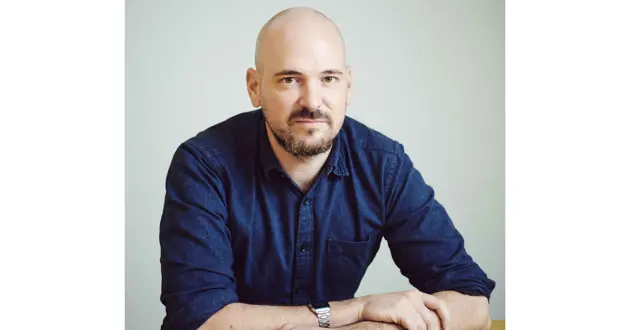Forward-thinking practices:
How can VR improve the way we live and work?
We asked Peter Fisher, Co-Founder & CTO at Khora Virtual Reality
1.
With VR I always try to look at it practically. I like to be grounded in what is possible today and where this really is going. During lockdown we got used to doing calls on a flat screen. I think VR will change that experience within the next 5-10 years allowing you to have your whole body in a shared digital space without being tied to a keyboard. It would reduce the need to fly around the globe for a high-level meeting. And it would make it possible for me to beam myself into the living room in my sister’s home on the other side of the Atlantic, catch up with her four kids, see their toys and show the drawings I am making them. You can call it the metaverse, but it is also just technology that supports the very human impulse to connect.
2.
For the architectural, design and urban planning industries, VR has the potential to make work more hands-on and collaborative. It will eventually make it possible for a team to a review a city plan in 3D and easily switch from an overview to the pedestrian’s perspective and go below ground to layers of sewage. For the professionals it can speed up processes. When it comes to citizen buy-in for upcoming projects it is a powerful tool too. In Denmark many projects are aiming to prevent flash flooding. VR makes it possible to look further than the years of construction. We did it by the lakes in Copenhagen together with the City of Copenhagen. Citizens could go into a booth and put on VR goggles and see the future draining areas.
3.
We continue to ask our clients: Does this idea make uniquely sense for VR? Long-term everything finds its place. Television did not kill the cinema. The cinema did not kill the theatre. You must find the right audience and the right content for the medium. The VR technology is still maturing and moving towards mixed reality. This gives you more freedom. Do you want to be completely immersed and not grounded in the real world or do you want to bring 3D objects into the real world and augment your space? This is something you now can switch on and off. And if you double check that what you do with it is not gimmicky and has a sense of purpose, the medium will be futureproof. No matter what happens to the hardware.
4.
Every technology has hype cycles. We are just moving out of one with NFTs and cryptocurrencies, we are in the middle of an AI cycle, and VR has been through at least four. You must leave the nonsense behind and focus on solving real world problems. The application of VR is diverse, spanning from its use within exposure therapy to cure phobias to being a tool for understanding the inaccessible in its widest sense. Whether it is the planet seen from above - a project we did with Ørsted - or showing the user the seabed up close in collaboration with Vestas. There might be an inflection point, where the technology leaps forward, as remote processing improves. But for now, we try to move steadily forward and inform what we do with the feedback from clients.
5.
I think regulation of any new technology is extremely important. You need government bodies that look at the opportunities from a societal perspective, especially in terms of securing the privacy of people. At Khora we work with both commercial and public partners, and I think they can nuance each other. Allow ethical ground rules to counter the marketing metrics, but never isolate politics from the actual application of the technology.
Learn more about the impact of creativity combined with emerging technologies: Explore Creative Denmark’s case studies




